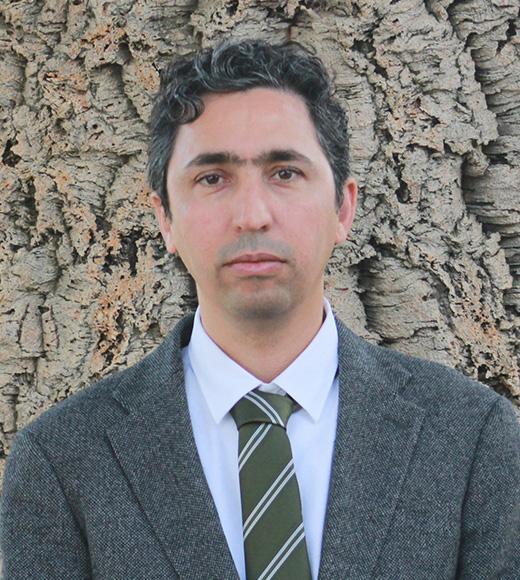
Position Title
Associate Professor
- Faculty
UC Davis, One Shields Ave, Davis CA 95616
Education:
- Ph.D., University of Tehran, Iran; Weed Science/Ecology, 2011
- M.Sc., University of Tehran, Iran; Weed Science/Ecology, 2006
Research interests and expertise:
I am particularly interested in understanding the eco-evolutionary processes underpinning the spread and escalation of weedy and invasive plants both in agricultural and natural systems. In research on weeds, I am striving to establish links between ecological patterns and physiological processes through advanced modeling approaches. My lab uses a diverse variety of tools and techniques including advanced modeling, remote and proximal sensing, image processing, and GIS to develop “eco-tech” solutions for ecological management of weeds as well as a better understating of the spatial and temporal variability of weed populations and communities. My research has direct outcomes for ecological management of weeds and thus can help reduce the use of chemicals in weed management. The current focuses of the lab are:
- Reproduction biology (mating system) of weeds and invasive plants
- Interaction between weedy plants and their pollinators
- Spatiotemporal dynamics of weeds and invasive plants
- Seed germination and emergence ecology with focus on development of predictive models
- Big data modeling and precision agriculture
- Application of artificial intelligence (deep learning) in weed science and management
Current projects:
- Google Weed View: Developing automated roadside surveys for weed detection
- WeedChat: Creating an AI-powered chatbot specialized in weed science
- WeedWatch: Advancing satellite-based mapping of weeds in row crops
- Sensing Branched Broomrape: Using remote and proximal sensing to detect branched broomrape (Phelipanche ramose) in tomatoes
- Phenology Modeling: Predicting developmental stages of branched broomrape
- Regulated Plants Database (RPD): a global platform to track noxious weeds
- Palmer Amaranth Biology: Deciphering sex determination in Amaranthus palmeri
- Sterile Pollen Technique: Combining reproductive biology with UAV technology to suppress weed seed production
- Seed Quality Assessment: Applying hyperspectral imaging for rapid testing
- Time-Specific Weed Management: Modeling weed seedling emergence for optimized control
- Land–Water–Food Nexus in Iran: Exploring the interconnections of agriculture, natural resources, and sustainability
Current teaching:
- Introduction to Weed Science, PLS 176 (Winter quarter)
- Applied Statistics in Agricultural Sciences, PLS 120 (Fall quarter)
External activities that contribute to scholarship:
- Subject Editor: Weed Research
- Journal reviewer for PNAS, Weed Research, Weed Science, Pest Management Science, Frontiers in Ecology and the Environment, Scientific Reports, Journal of Ecology, Diversity and Distribution, Methods in Ecology and Evolution, PLoS ONE, Global Ecology and Biogeography, Ecological Modelling, Landscape Ecology, Annals of Botany, European Journal of Agronomy, Agronomy Journal, Field Crop Research, Weed Technology
Prizes, Awards, Honors:
- McKenzie Fellowship, The University of Melbourne, Australia (~$255,000; 3 years)
Social media links:
Keywords:
- Weed
- Invasive plant
- Invasion
- Ecology
- Modeling
- Population dynamics
- Mating system
- Seed germination
- Weed management
- Pollination ecology
- Seedling emergence
- Remote sensing
- Mechanistic model
- Hybridization
- Data analysis
- Seedbank
- Deep learning
- Artificial intelligence (AI)
- Machine learning
- eco-technology
